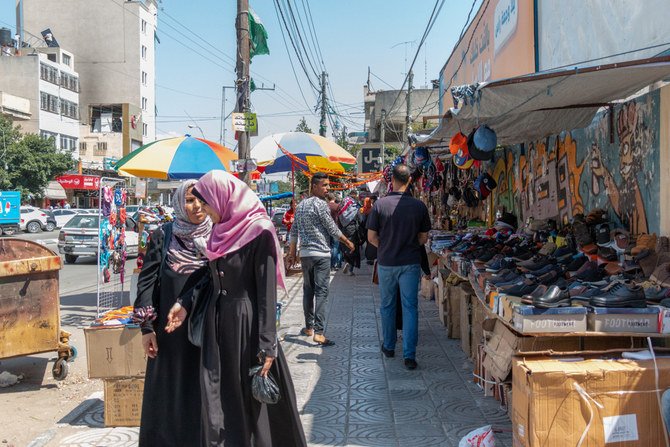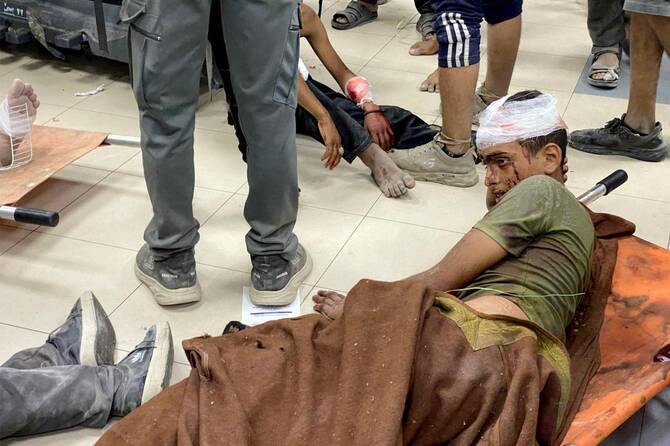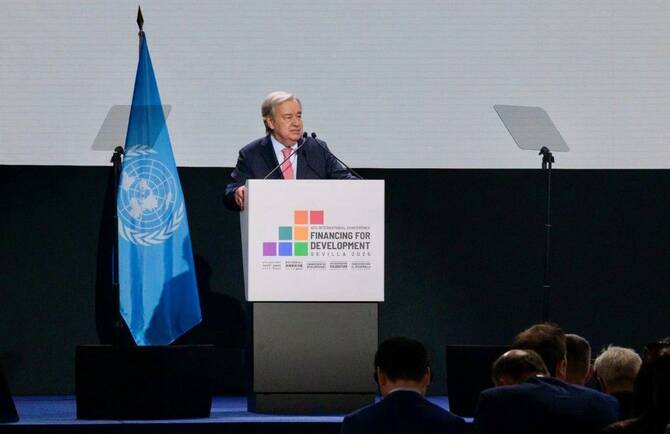Hazem Balousha
GAZA CITY: For the second year running, Hassan Abu Al-Amrain has missed out on relief aid for his family during the month of Ramadan.
There has been a significant drop in the amount of funding provided to local civil humanitarian charities due to the measures imposed to curb the coronavirus disease (COVID-19) pandemic.
Abu Al-Amrain, 47, who lives in Gaza City said: “For the second year, the month of Ramadan has been the most difficult for us. We would usually wait for supplies of goods and food provided by charitable associations because I am unable to buy them.”
Anxiety dominates Abu Al-Amrain, who suffers from illnesses that have kept him out of work for 20 years.
“The situation is very difficult, and I do not know how I will provide my family’s needs,” he told Arab News.
More than two-thirds of the Gaza Strip’s population of some 2 million people suffers from poverty or extreme poverty, according to the UN Relief and Works Agency for Palestine Refugees (UNRWA).
Local statistics show that the unemployment rate was 43 percent before the pandemic, but it has now exceeded 50 percent, with heads of families losing their jobs.
For needy families, the month of Ramadan is an opportunity to receive financial donations and food aid, which help them endure the hardships of life in Gaza, which has been deteriorating over the past 15 years as a result of the Israeli blockade and internal division.
“COVID-19 deprived us of the bounties of the month of Ramadan. In previous years, we did not need aid for months after the end of Ramadan,” said Abu Al-Amrain.
Abu Al-Amrain lives with his wife Hala, 35, and their four children in a small and dilapidated house in the Sheikh Radwan neighborhood, north of Gaza City.
“For many years, we have not tasted fresh meat except during Ramadan, with charitable assistance,” Hala said, adding: “We do not have the ability to buy it.”
In Gaza, a kilo of fresh beef is sold for 50 shekels ($14). According to UNRWA data, about 80 percent of the population depends on humanitarian aid.
Due to a weak diet with little protein and vitamins, Hala suffers from an imbalance in his white and red blood cells, which causes dizziness and a rise in body temperature.
Doctors also discovered that her son Mohammed suffers from bone erosion, while her daughter Malak suffers from weak immunity and skin diseases, caused by malnutrition, as well as dampness and poor house conditions.
Abu Al-Amrain receives assistance from the Ministry of Social Affairs, which it disburses to the poorest families in the Gaza Strip once every three months, and it is estimated at 750 shekels.
But Abu Al-Amrain complains that aid has been irregular in the last two years and is not sufficient for the minimum requirements of life.
Despite the difficult epidemiological situation in Gaza, with a sudden increase in the number of COVID-19 infections, Abu Al-Amrain and his family lack the most basic protective equipment such as masks, detergents, and sterilizers.
The government administration, headed by Hamas in Gaza, has imposed strict measures to reduce infections.
These restrictions impacted the level of services provided by charitable institutions, especially food aid and Iftar.
An official at Al-Khair Foundation, who refused to reveal his name, told Arab News: “For the second year in a row, we will not organize Iftar for the poor, orphans, and the marginalized due to the emergency measures associated with COVID-19, as well as the decline in the level of external financing associated with Ramadan activities.”
Director of the Network of NGOs in Gaza, Amjad Al-Shawa, said that international funding has dropped more than 40 percent due to donor countries focusing on internal concerns and the pandemic.
Al-Shawa told Arab News that the Social Affairs Ministry’s delay in disbursing the dues of the needy people in Gaza has exacerbated their suffering.
“Money and funding in Gaza are retreating and the poor are increasing,” he said.






















